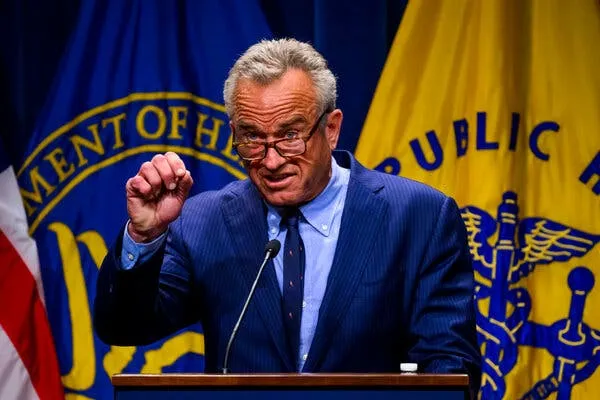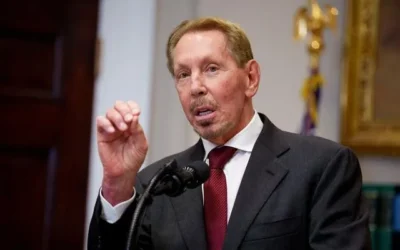RFK Jr. Removes All CDC Vaccine Panel Experts: A Deep Dive into the Implications
In a surprising move that has sent ripples through the public health community, Robert F. Kennedy Jr. (RFK Jr.) has terminated all 17 members of the Advisory Committee on Immunization Practices (ACIP), the CDC’s key vaccine advisory panel. This decision raises significant questions about the future of vaccine policy in the United States and the broader implications for public health.
What is ACIP?
ACIP plays a crucial role in shaping the immunization landscape in the U.S. The committee is composed of experts in various fields, including infectious diseases, public health, and immunology, who provide recommendations on the use of vaccines in the general population. Their insights guide state and federal vaccine programs and influence public perception of vaccine safety and efficacy.
The Controversial Move
RFK Jr.’s decision to replace all members of ACIP comes amid growing scrutiny and skepticism about vaccines in the wake of the COVID-19 pandemic. For years, Kennedy has been an outspoken critic of vaccine policies, positioning himself as a champion for vaccine choice and parental rights. His latest action signifies a further shift in the national dialogue on vaccines.
Why Did RFK Jr. Make This Move?
According to RFK Jr., the dismissal of the ACIP members is a step towards restoring public trust in vaccines. He argues that the current panel is composed of individuals who are too closely tied to pharmaceutical companies and the CDC, thus potentially compromising their objectivity. By appointing new members, Kennedy seeks to bring fresh perspectives to the committee, which he believes will ultimately benefit public health.
Implications for Vaccine Policy
This move could have far-reaching implications for vaccine policy in the United States. With a new committee in place, there is potential for substantial changes in the recommendations regarding childhood vaccines, COVID-19 vaccines, and other immunizations. The possible alteration of recommended vaccine schedules, which could either increase or decrease vaccine uptake rates, is a significant concern.
Pandemic Context
The COVID-19 pandemic has already furrowed the landscape of public trust in vaccines. Thousands of Americans remain skeptical about vaccinations, many citing concerns over safety, efficacy, and government transparency. RFK Jr.’s actions could be seen as a direct response to this uncertainty—an attempt to cater to those who feel disenfranchised by the establishment.
The Role of Public Confidence
Public confidence in vaccines is essential for maintaining herd immunity and preventing outbreaks of contagious diseases. Vaccine hesitancy has been a growing concern, and RFK Jr.’s actions could exacerbate this problem if the new ACIP members lean towards vaccine skepticism or alternative health practices.
Response from the Public Health Community
The removal of ACIP members was met with mixed reactions from the public health community. Many experts have expressed concern that this move could lead to a further decline in vaccination rates, particularly among vulnerable populations. Dr. Anthony Fauci, a prominent figure in infectious disease research, stated, “The integrity of public health policy depends on science and evidence, not sensationalism or personal beliefs. The ACIP’s decision should be based on the best available data, not influenced by politically charged rhetoric.”
Pursuing Dialogue and Collaboration
Some advocates for vaccine choice believe that changes to ACIP could be a welcome opportunity for dialogue and collaboration between vaccine supporters and skeptics. RFK Jr. has emphasized the importance of listening to diverse voices in health discussions. However, critics argue that this approach could result in policies that undermine the established scientific consensus on vaccine safety and efficacy.
The Future of Vaccine Committee?
As RFK Jr. moves forward with reshaping ACIP, the future role of this committee remains uncertain. The new appointments could range from individuals committed to vaccine safety and transparency to those who prioritize alternative methods of healthcare. The real question is whether these appointments will contribute positively to the public health narrative or deepen the divide between pro- and anti-vaccine groups.
Contexts of Distrust
Distrust in vaccines often correlates with broader societal concerns. Issues of healthcare equity, misinformation, and political polarization play significant roles in shaping public opinion. Addressing these issues should be paramount for anyone intending to rebuild public trust in vaccines. Health educators and policymakers must consider the narratives being presented and work to provide credible information that resonates with the communities they serve.
Conclusion: Toward a Balanced Perspective
RFK Jr.’s dismissal of the ACIP members is more than merely a personnel change; it is a reflection of the current state of vaccine dialogue in the U.S. The implications of this move extend beyond immediate policy changes—underscoring the challenge of reconciling public health messaging with prevailing societal concerns. Ultimately, the future of vaccines in America rests on our ability to foster transparency, build dialogue, and develop policies that prioritize the health of the public while respecting individual freedoms.
As this situation unfolds, it will require ongoing vigilance from both the public and advocacy groups to ensure that the dialogue remains focused on evidence-based outcomes, rather than sensationalist rhetoric. Only time will tell how this new chapter in public health will affect the acceptance and trust in vaccines across the United States.







